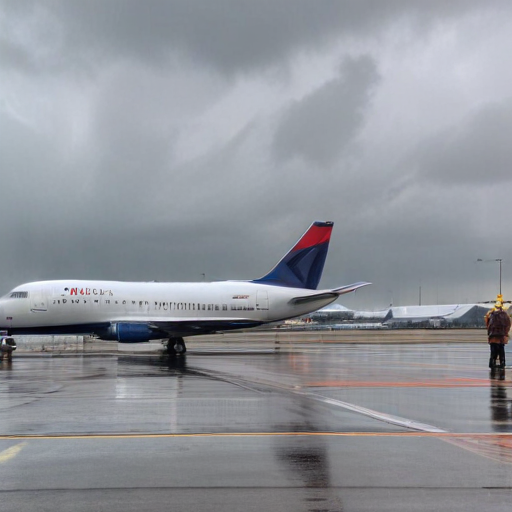Delta Air Lines faced significant disruptions this past weekend, resulting in the cancellation of thousands of flights due to a worldwide software outage linked to a faulty update by cybersecurity firm CrowdStrike. The airline reported a staggering 3,500 flight cancellations and 1,600 delays from Friday to Saturday, with an additional 1,300 cancellations on Sunday alone, according to FlightAware data.
On Monday morning, Delta continued to struggle, canceling 626 flights and delaying an additional 144, which accounted for 20% of its scheduled operations. In contrast, American Airlines experienced minor disruptions, with only 38 cancellations and 155 delays.
The incident was triggered by a software update that malfunctioned and affected Microsoft’s Windows operating systems, resulting in widespread access issues for numerous industries, including airlines, healthcare, and financial services. As a consequence, Friday saw over 46,000 flight delays and more than 5,000 cancellations across the aviation sector.
Delta CEO Ed Bastian acknowledged the difficulties customers faced and expressed regret over the cancellations. He emphasized the airline’s commitment to connecting people and noted that the disruption stemmed from issues with critical applications used by Delta, such as those related to crew tracking. To assist affected passengers, Delta has implemented a travel waiver policy and is providing meal vouchers, hotel accommodations, and transportation.
Transportation Secretary Pete Buttigieg voiced concerns on social media, stating that his department received numerous complaints regarding Delta’s response to the crisis. He stressed the need for airline accountability, demanding refunds, free rebooking, and timely reimbursements for food and lodging for those impacted.
This situation highlights the complexities airlines face when technological failures occur and the importance of robust contingency plans in the industry. Despite the challenges, Delta’s proactive approach in offering support to affected passengers shows their commitment to customer service during turbulent times.
As the airline industry continues to recover from the pandemic and enhance its technological infrastructure, this incident serves as a crucial lesson in the necessity of resilience and adaptability in operations.
